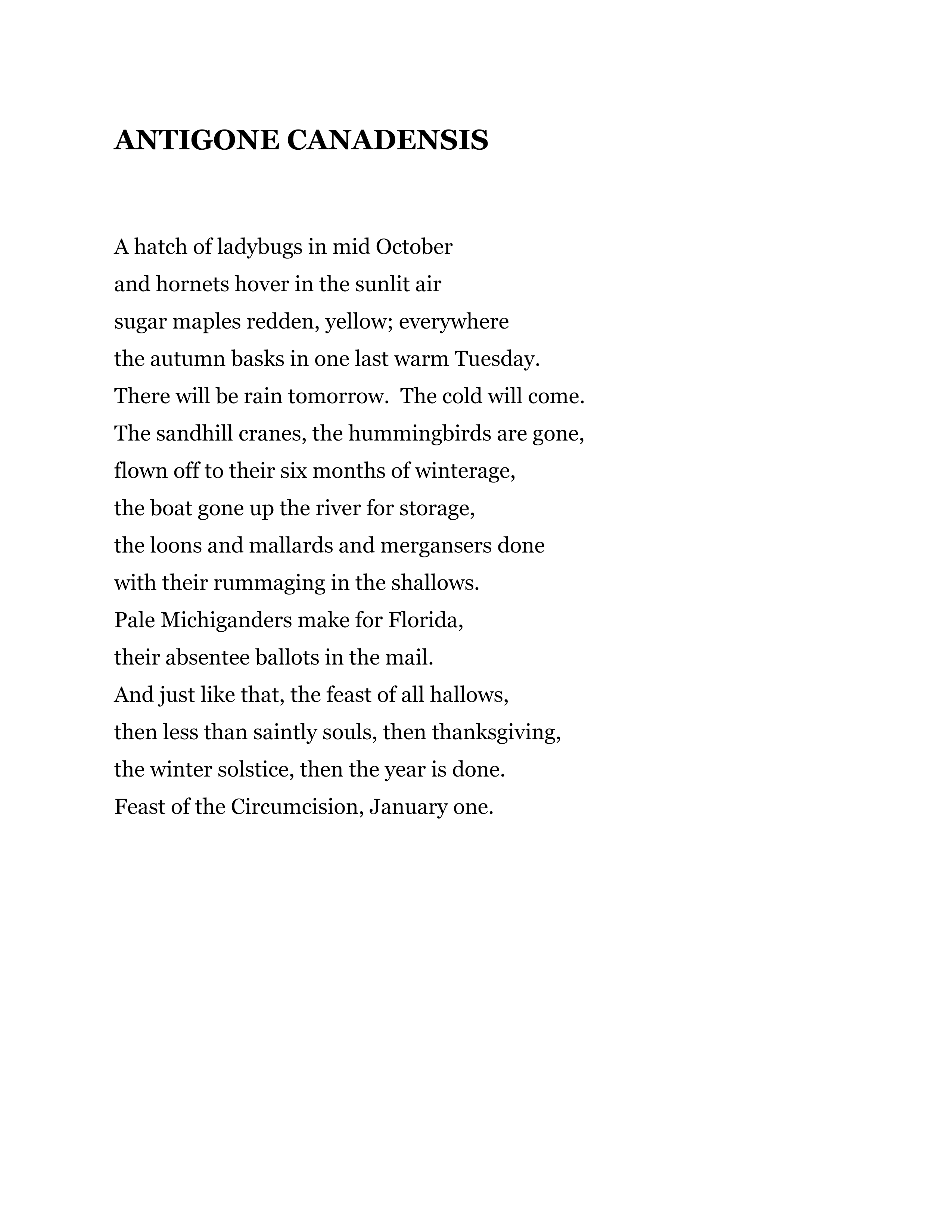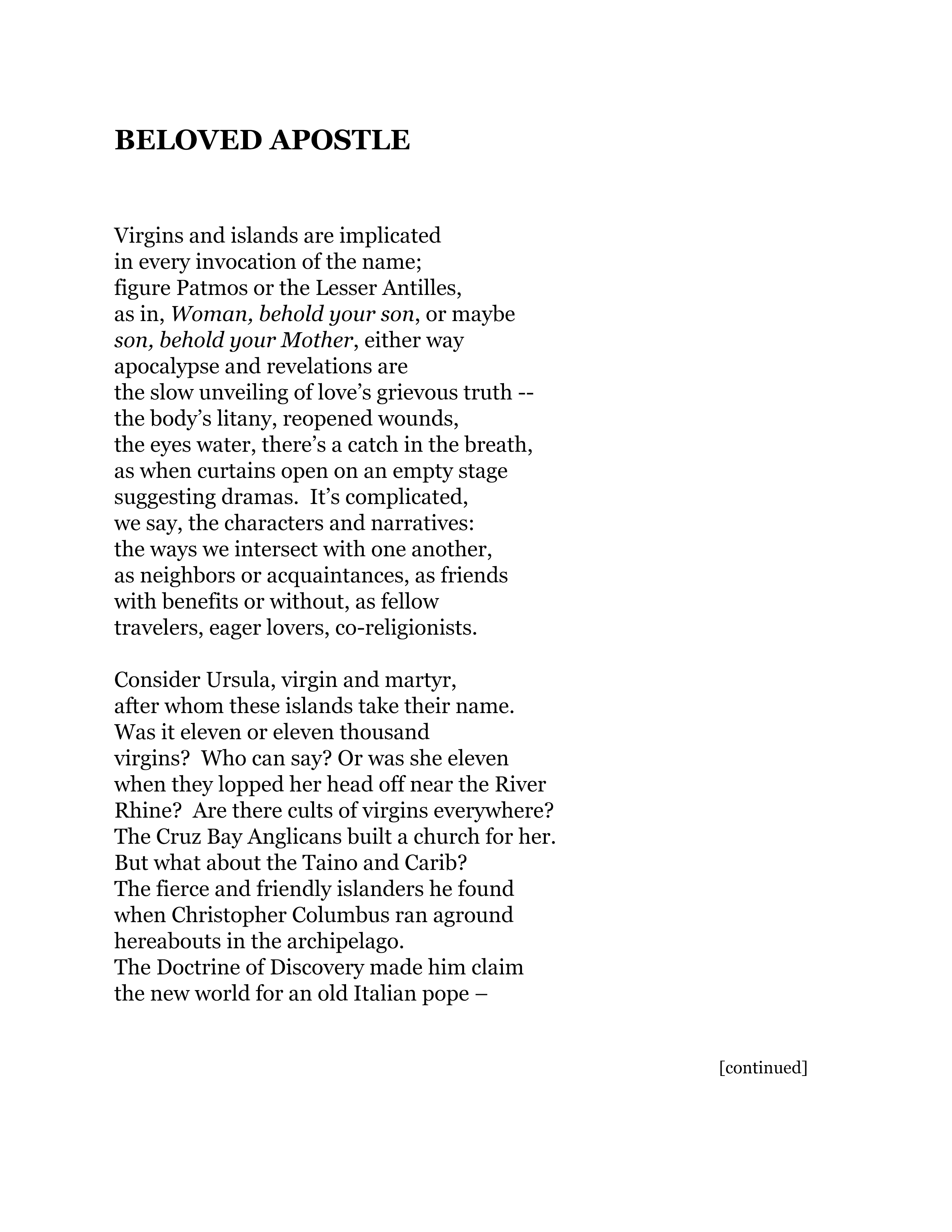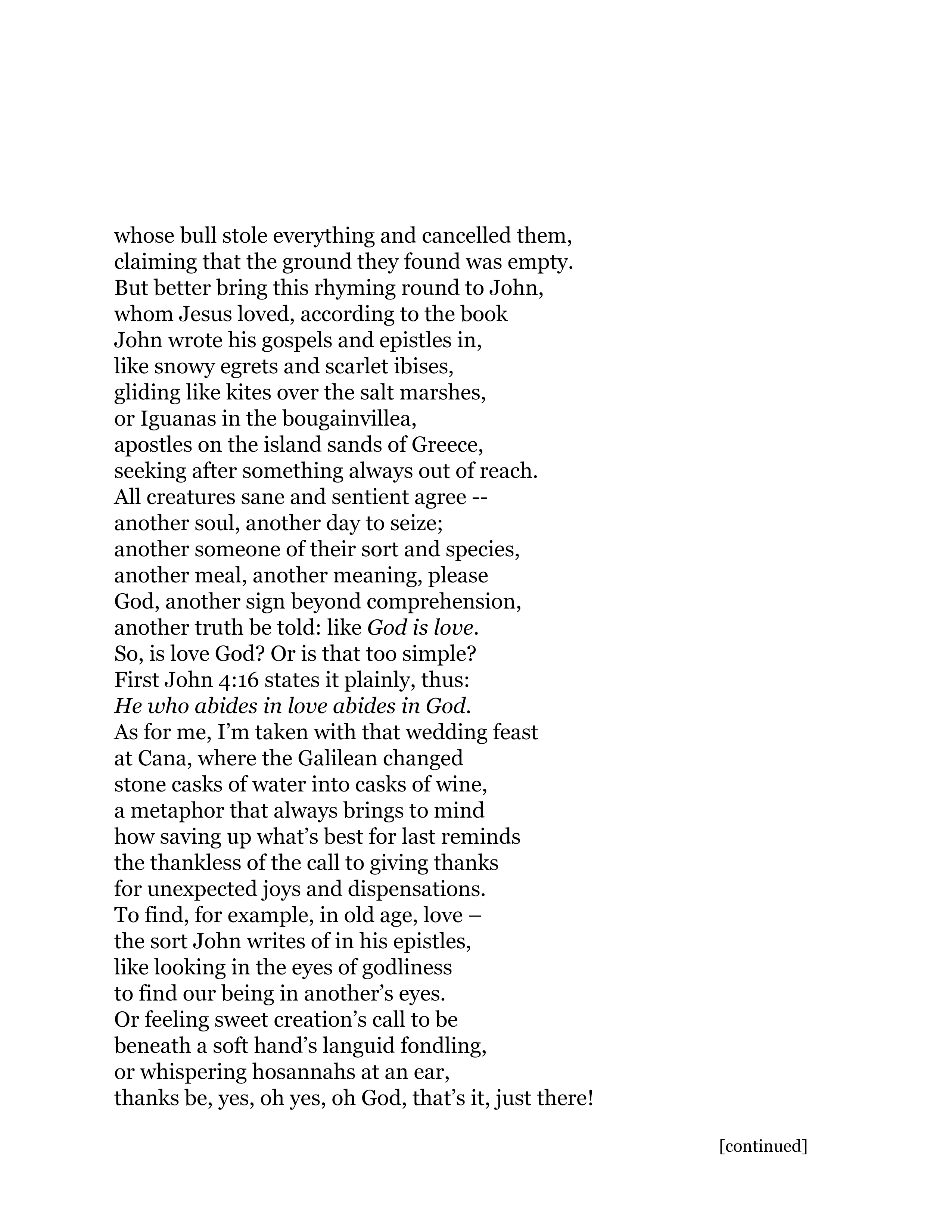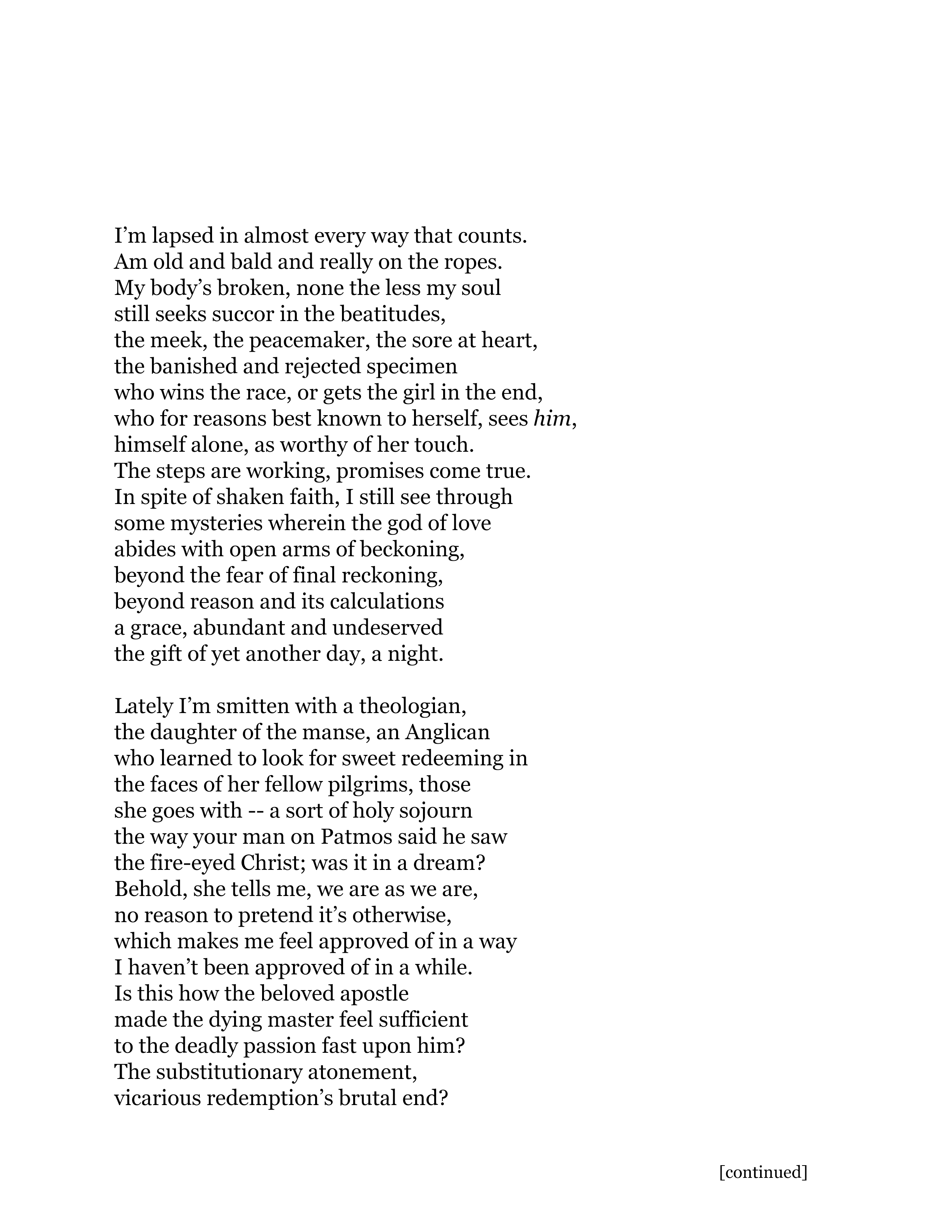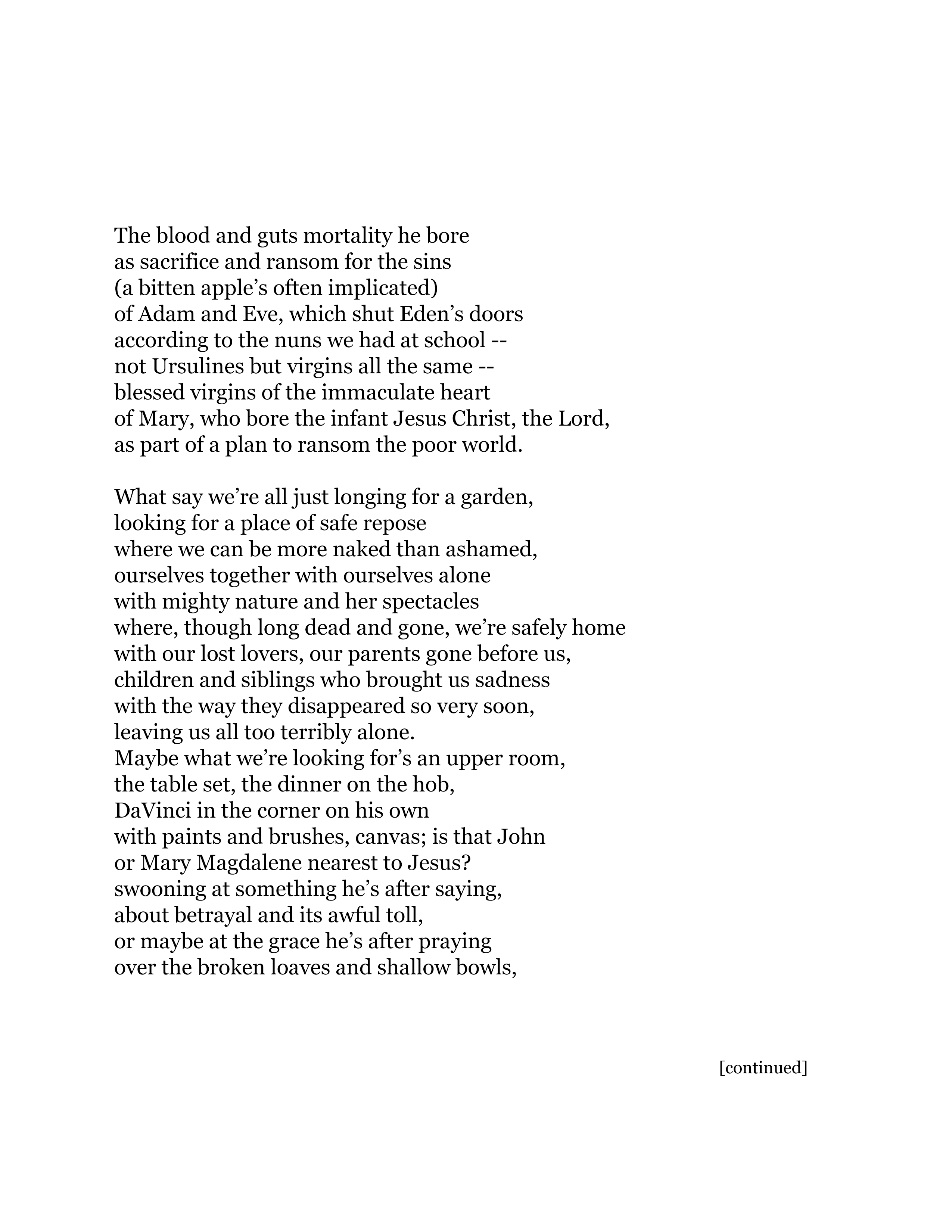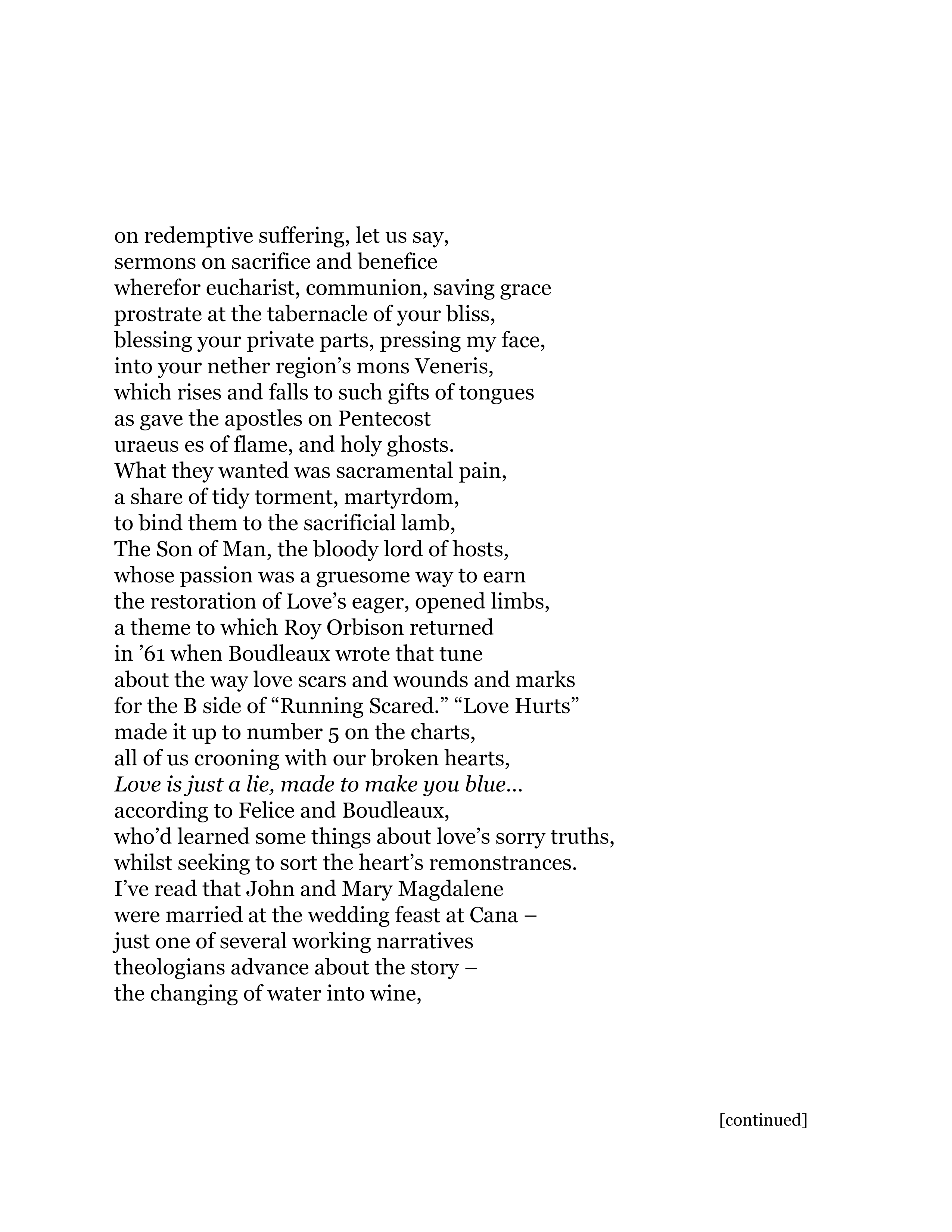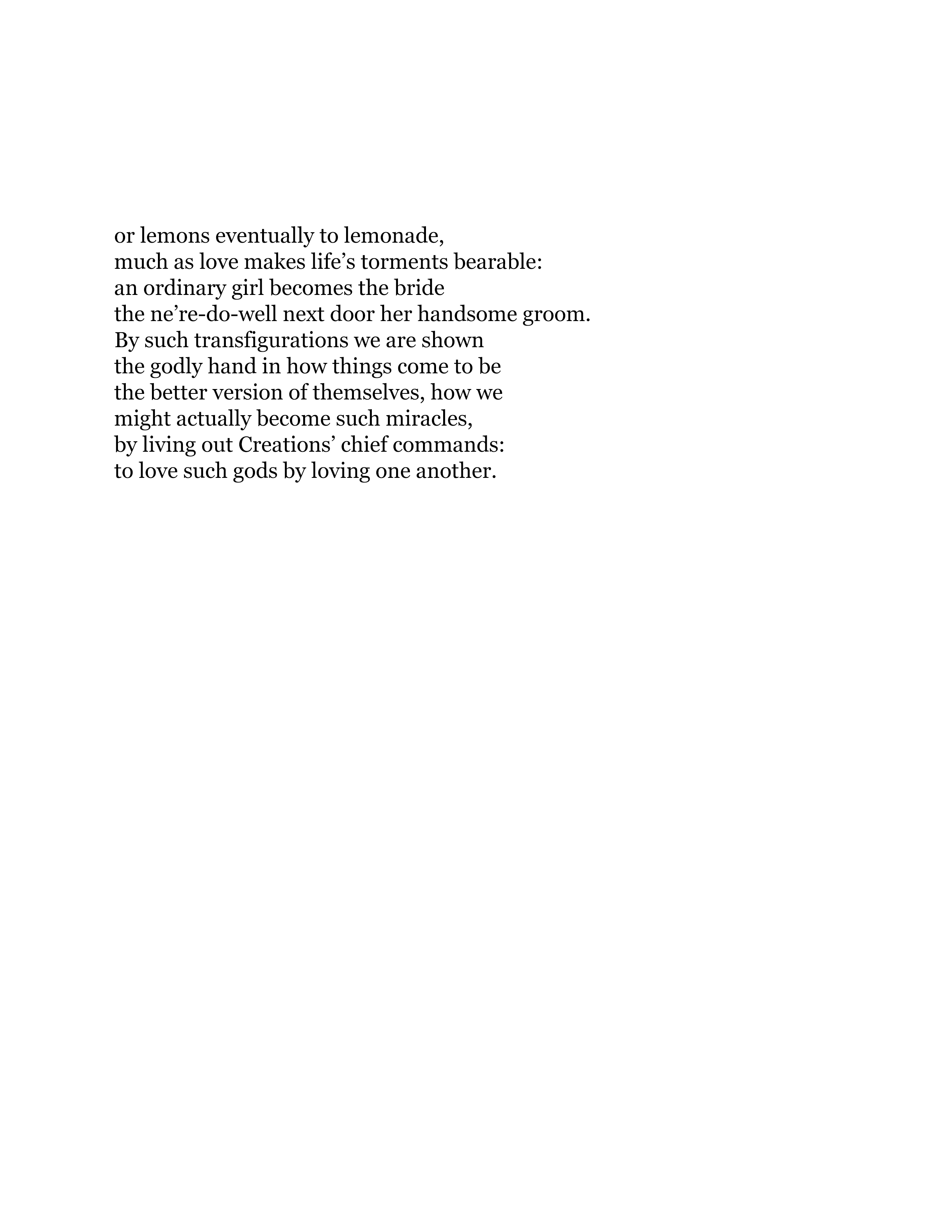2 poems by Thomas Lynch
1 essay by Jasmine An,
on the poems of Thomas Lynch
“Is love God? Or is that too simple?”
“Beloved Apostle” is a poem that withholds itself, initially. The speaker’s “I” does not appear until 50 lines into the poem, obfuscated at first behind the slow, unfurling curtains of faith and “It’s complicated, we say … the ways we intersect with one another.” I began unsure of my welcome—I who have never known God. To me, that much is simple. And yet: I have known love. And I have loved those who have loved God, and I would have loved to love such a love in those moments when the intersection with another has felt impossible.
Perhaps nothing is simple in slowness, or everything is. I find myself opening into language:
“the slow unveiling of love’s grievous truth—
the body’s litany, reopened wounds,
the eyes water, there’s a catch in the breath”
And oh, in this litany I find myself and my body. “eyes water, there’s a catch in the breath” is a passive construction, yet that indeterminate space offers a kind of invitation. Breath—my own, another’s, the speaker’s, the catch and pull of unwilling lungs. Grief that is predicated upon love, and all the more grievous because of it. In the call and response of this slow truth I find my connection to the speaker, our own litany building.
I, like the speaker, often find myself “lapsed in almost every way that counts” and rather than despair we have trained ourselves to relish a different kind of accounting: imperfect knees, the second try after error, slow touch of hand against a hip. I, like the speaker, have known love, and I have loved those who have loved the bewildered world. Yet, when the speaker says, “The steps are working, promises come true” I wonder. Last week, I took a step and slipped on a patch of black ice while cities burned. Today, Palestine is not yet free and the urn holding my grandmother’s ashes is barely cool. What promises can come true in such a world?
I have yet to find the answers in God, or even in love alone (and what is that but life’s most grievous truth). Poetry, too, is too often nothing but unbidden, incomplete solace. Yet, the companion poem to “Beloved Apostle” lingers with me for this reason: “Antigone Canadensis” the sandhill crane. Flight and then return. The promise that “the year is done” and yet it comes again, relentlessly—the “Feast of Circumcision, January one.” I am from Michigan and I have often caught my breath at the silhouette of a crane in the distance. Ten pounds of grey and ochre feather: the many ways home etched into brain, blood, and bone. A scarlet crown.
In the space between “Antigone Canadensis” and “Beloved Apostle” I find for myself another answer, of sorts:
“What say we’re all just longing for a garden,
looking for a place of safe repose
where we can be more naked than ashamed”
I have built my garden in another and felt the frailty of that repose. I am not the only one. “We” the speaker says to us—readers—and to themselves. There is a collective longing here for God, for love, for safety. Even the sandhill cranes migrate in flocks; the juveniles gather to travel together once their parents’ care has turned towards a new brood. The “we” reminds us that even if another should not become our garden, longing was once fed amidst the empty rows and will be again, whether by our hands or a flighted creature’s lingering footsteps. Why do we turn again and again to language, as to God, to ask for the definition of something so unfathomable as love? How does the sandhill crane trust again and again in their return to a familiar feeding ground once the snow thaws? What do we have to trust in but one another?

